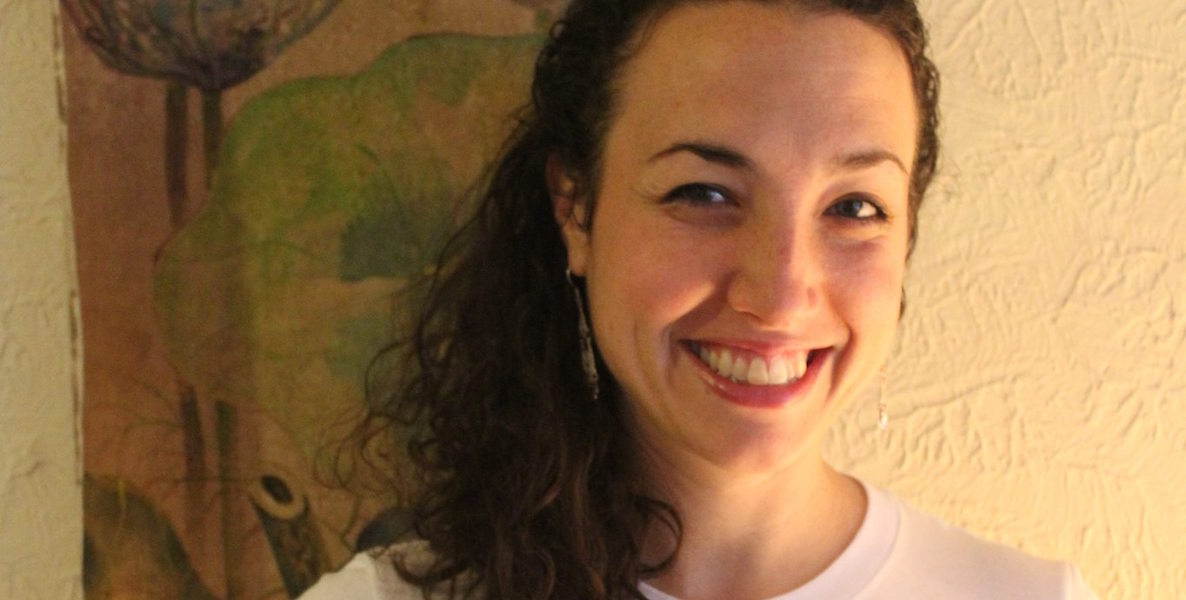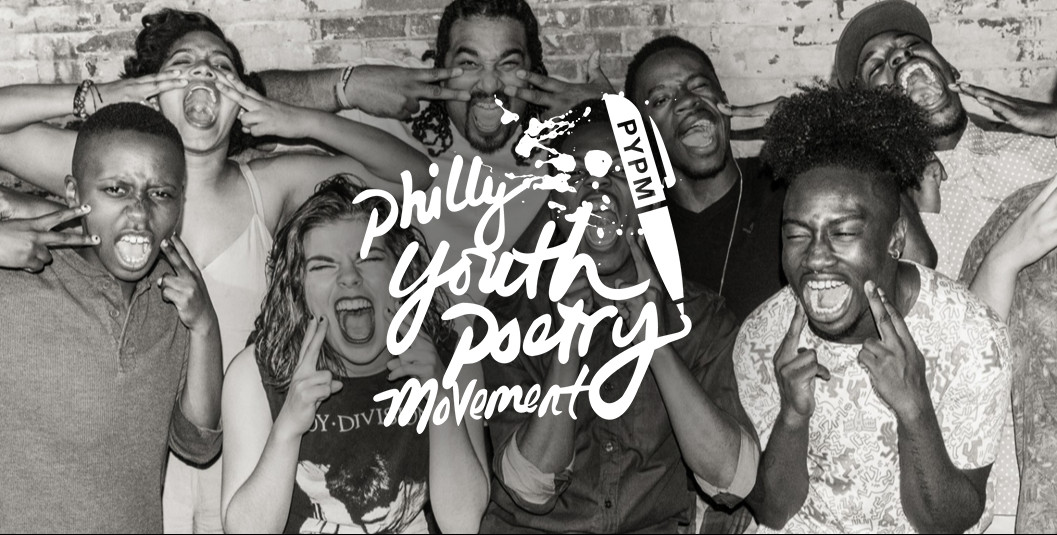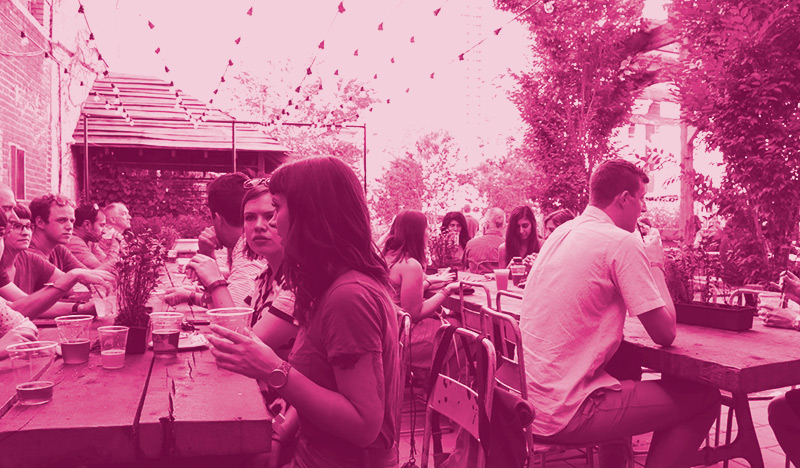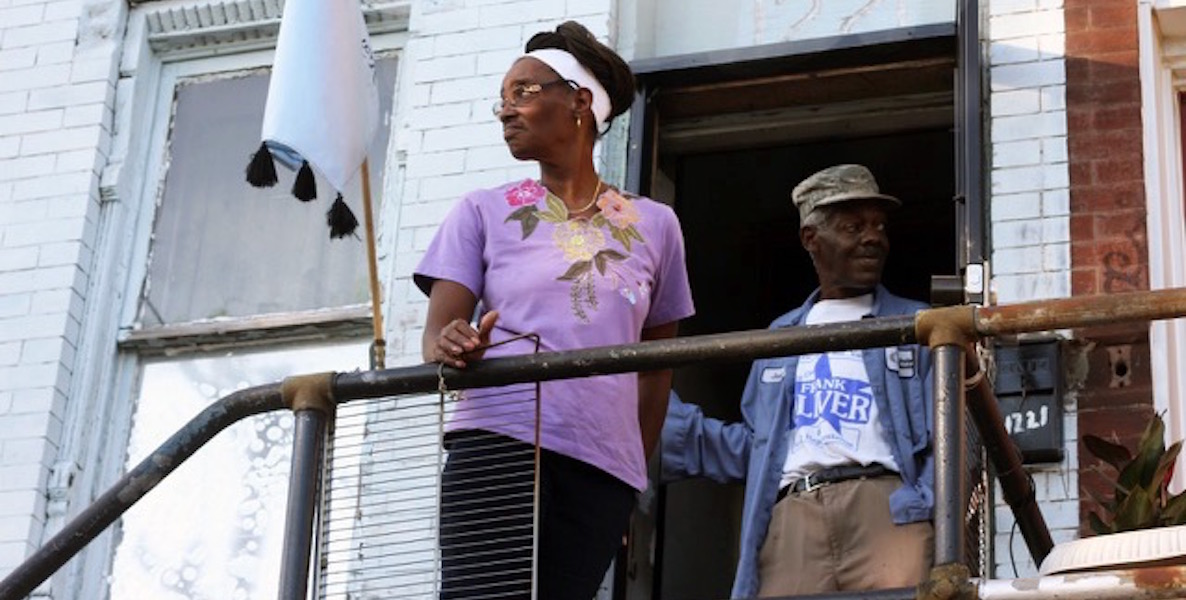Most weekdays at 3 p.m., “Miss Nandi” Muhammad plants a flag outside the front door of her North Philadelphia home. It’s just before schools in her Fairhill-Hartranft neighborhood release their kids after another long school day. The flag is pale blue with tassels, and says “Will Power” in a script font. This flag is there to let the schoolchildren know that the Penny Candy store is open for business.
The Penny Candy store, at 12th and Cumberland, operates out of the home of Nandi and Khalid Muhammad. Here, only children are allowed in to buy individual pieces of candy, soft pretzels, and ice cream. And although the candy is no longer a penny, the price is still cheaper than at other bodegas in the neighborhood. Which is okay, since profit is not the main goal of the store.
![]() As an informal after-school community center, Penny Candy teaches kids about addition and subtraction, lines of credit, Black history, and respect of all kinds. As Nandi says, “Kids are gonna pay attention to candy, so you teach them with candy.”
As an informal after-school community center, Penny Candy teaches kids about addition and subtraction, lines of credit, Black history, and respect of all kinds. As Nandi says, “Kids are gonna pay attention to candy, so you teach them with candy.”
The Muhammads opened Penny Candy in 2001, taking over from a neighbor when she retired. Miss Billie’s store on 12th street was a more typical bodega, offering candy and other items to adults and children. The Muhammads weren’t interested in the business. But they saw a need for safe spaces for kids in the neighborhood.
The lessons begin on the stoop, where children are asked to tie their shoes before they enter the store. Once inside, these customers must calculate their own charges for the candy they pick, and the change they should receive back. Adorning the walls are portraits — from Martin Luther King, Jr. to Cecil B. Moore — to teach kids about Black history. No adults are allowed in the store, because “Adults have a tendency to have guns, knives, and drugs in their pocket,” says Nandi. “We wanted them to be able to come here and be safe while they purchased their candy.”
For Fairhill-Hartranft, traditional institutions offered no real progress. Instead, change was happening through the will power of Nandi and Khalid Muhammad, the recovery power of Darlene Pope, and O’s healing power of love.
The most important lesson is the message on the flag: “Will Power.” And while “will power” may seem like the wrong message for a candy store, it’s a phrase that reveals Miss Nandi’s greater purpose. “Kids often have doubt,” she says. “I don’t believe that kids should have doubt. If you can form the thought, you can achieve it. If you’re standing at the other side of the table, you have willpower, to have brought you to me.”
The Muhammads are among a handful of residents in this North Philly neighborhood who have taken it upon themselves to create a better community for their fellow citizens. A few blocks away, longtime resident Darlene Pope is a block captain who has witnessed poverty, addiction, and violence in her family and the neighborhood. She herself got caught up with drugs, because “I was trying to stay alert, I worked at three jobs, I was burnt out,” she recalls.
In her recovery, she’s chosen not just to survive, but to thrive, improving her block as well as herself. Pope believes that “you have to respect where you come from, and even if it’s not the best … you have to respect what you are going to do for you and to make it better for you and yours.”
As block captain, Pope organizes clean-ups, looks after the very young and very old in her neighborhood, and finds grants to fix up nearby homes. She sees this work as part of a greater effort to fight gentrification pressure from nearby Temple University — not to stop it outright, she says, but to stay strong enough to withstand the inevitable change. As one local resident, Franklin Tate, says, “I’d never seen a block as clean as Ms. Darlene’s.”
Nearby, “O” is a community healer at the Serenity House, a non-profit community center in Fairhill-Hartranft, where she offers community gatherings and group sessions on anger management, domestic violence issues, healthy eating, and more. She has embarked on Serenity Soular, a project that connects solar power with healing and self reliance. Now she is working to bring solar roofs to the neighborhood as a way to provide green jobs for residents, while also providing earth-powered electricity to neighborhood homes.
None of the these folks are elected officials, or anyone in a typical position of power. They have never even met. They are all regular residents, working on their own, through a mix of ambition and a sense of responsibility, to create an impact for their neighborhood. They are the real power working for change.
“Physical, traditional places of of power are non-existent here because of disinvestment in the neighborhood,” says Aviva Kapust, executive director of the nearby Village of Arts and Humanities. “There’s not a post office, not a library. But even though there is disinvestment, there is also potential for reinvestment, and it’s critical for people to be at the front of that.”
The most important lesson is the message on the flag: “Will Power.” “Kids often have doubt,” Miss Nandi says. “I don’t believe that kids should have doubt. If you can form the thought, you can achieve it. If you’re standing at the other side of the table, you have willpower, to have brought you to me.”
This spring, the Muhammads, Pope and O are being celebrated by Places of Power, the latest project of the SPACES residency at the Village, a non-profit arts center. The project paired artists Anula Shetty and Mike Kuetemeyer with lifelong neighborhood residents Fred Harris and Franklin “Q” Tate. They found their subjects by hitting the streets to ask questions like: What is special here? What would you like to see?
They discovered that for Fairhill-Hartranft, traditional institutions offered no real progress. Instead, change was happening through the will power of Nandi and Khalid Muhammad, the recovery power of Darlene Pope, and O’s healing power of love.
“The idea was to document people creating change in the neighborhood and places of power that might not be visible,” Shetty said, “and make them visible both to the community and to people outside.”
![]() When complete, Places of Power will be a multi-platform mapping initiative that documents influential people and sites of belonging in the Fairhill-Hartranft neighborhood, and a documentary video series that will celebrate the “power grid” of the neighborhood. Shetty and Kuetemeyer will also create an interactive app, allowing users to peruse a neighborhood map embedded with video and text that share the story of this people-centered “power grid.”
When complete, Places of Power will be a multi-platform mapping initiative that documents influential people and sites of belonging in the Fairhill-Hartranft neighborhood, and a documentary video series that will celebrate the “power grid” of the neighborhood. Shetty and Kuetemeyer will also create an interactive app, allowing users to peruse a neighborhood map embedded with video and text that share the story of this people-centered “power grid.”
Still, it isn’t attention from outside that Miss Nandi and the others seek. It’s what’s happening on their block that matters. After a Penny Candy reunion organized by the artists in March, friends of the Muhammads cleaned up trash in advance of this weekend’s block cleanup. An article about it also triggered a call from the BBC, asking to film the store — a request Miss Nandi rejected, citing the “no adults” policy.
Instead, Miss Nandi pointed to Harris and Tate, the neighborhood artists who were integral to organizing the event. “These young men are proof that we’re doing something right,” she said. “They’re not dead, they’re not in jail. That’s what this [candy] table does.”
Correction: An earlier version of this story misidentified the executive director of the Village. Her last name is Kapust. Also, the description of Pope has been altered to better reflect her situation.
Photo Header: Miss Nandi at the Penny Candy Reunion, courtesy of Village of Arts and Humanities






